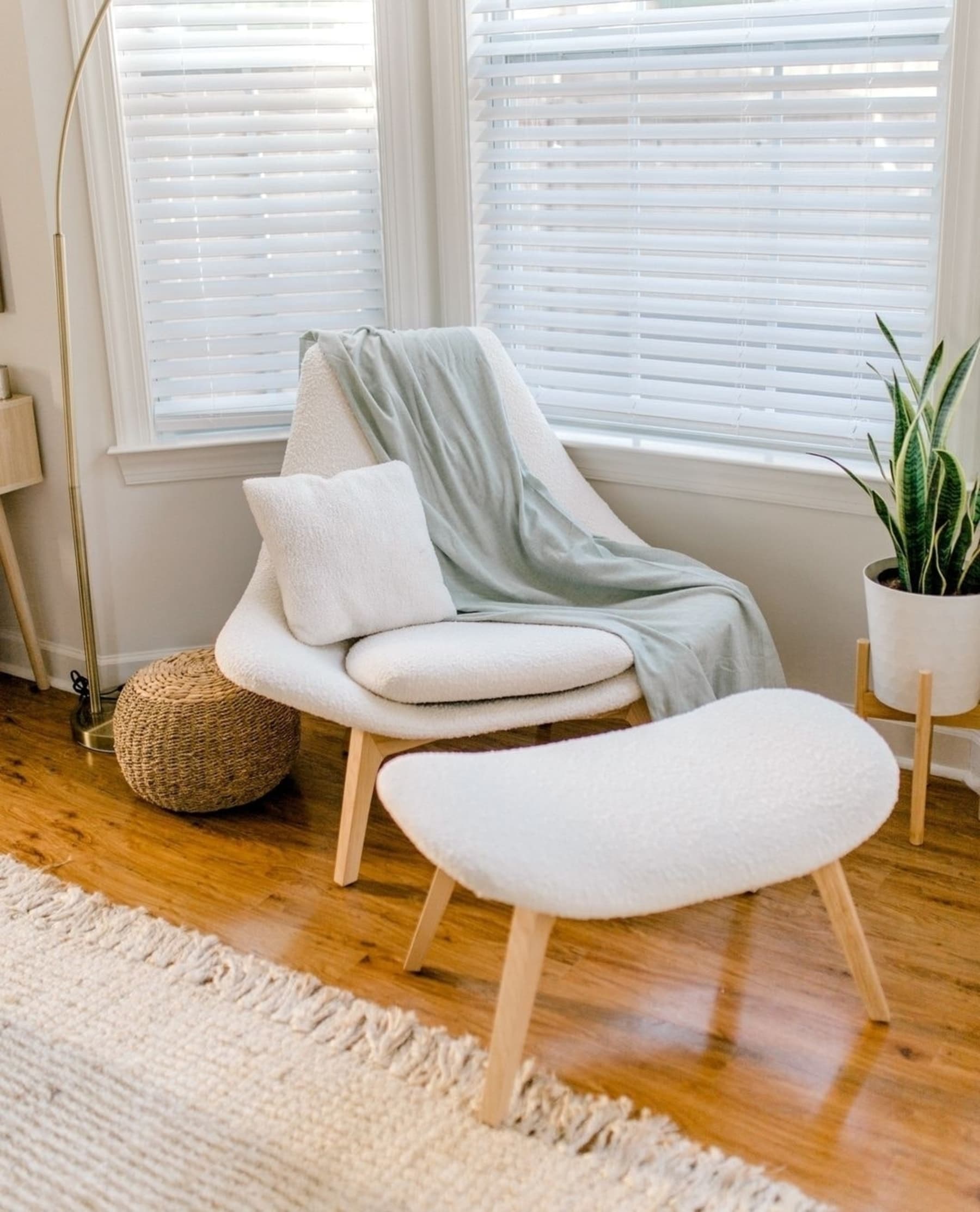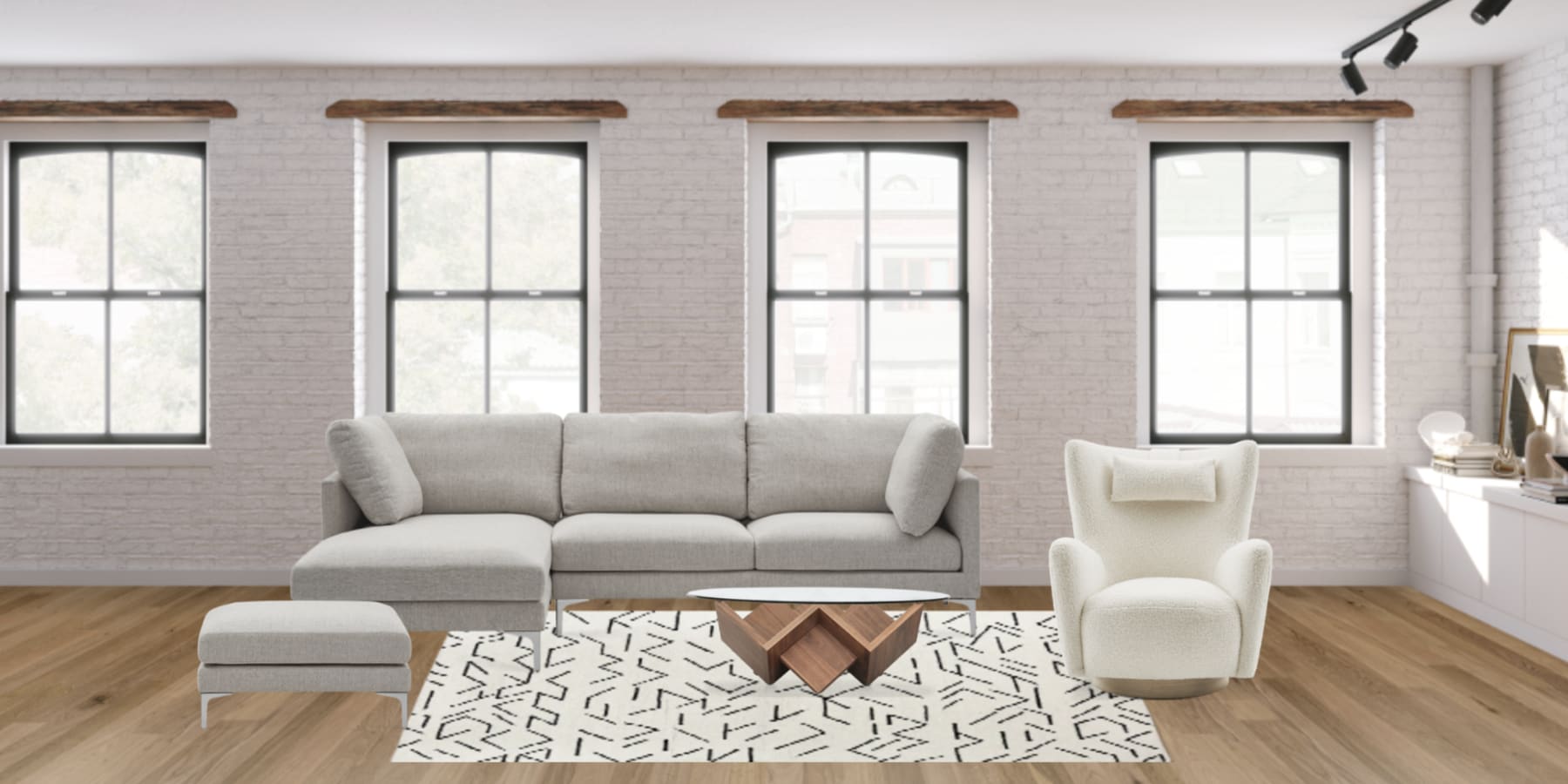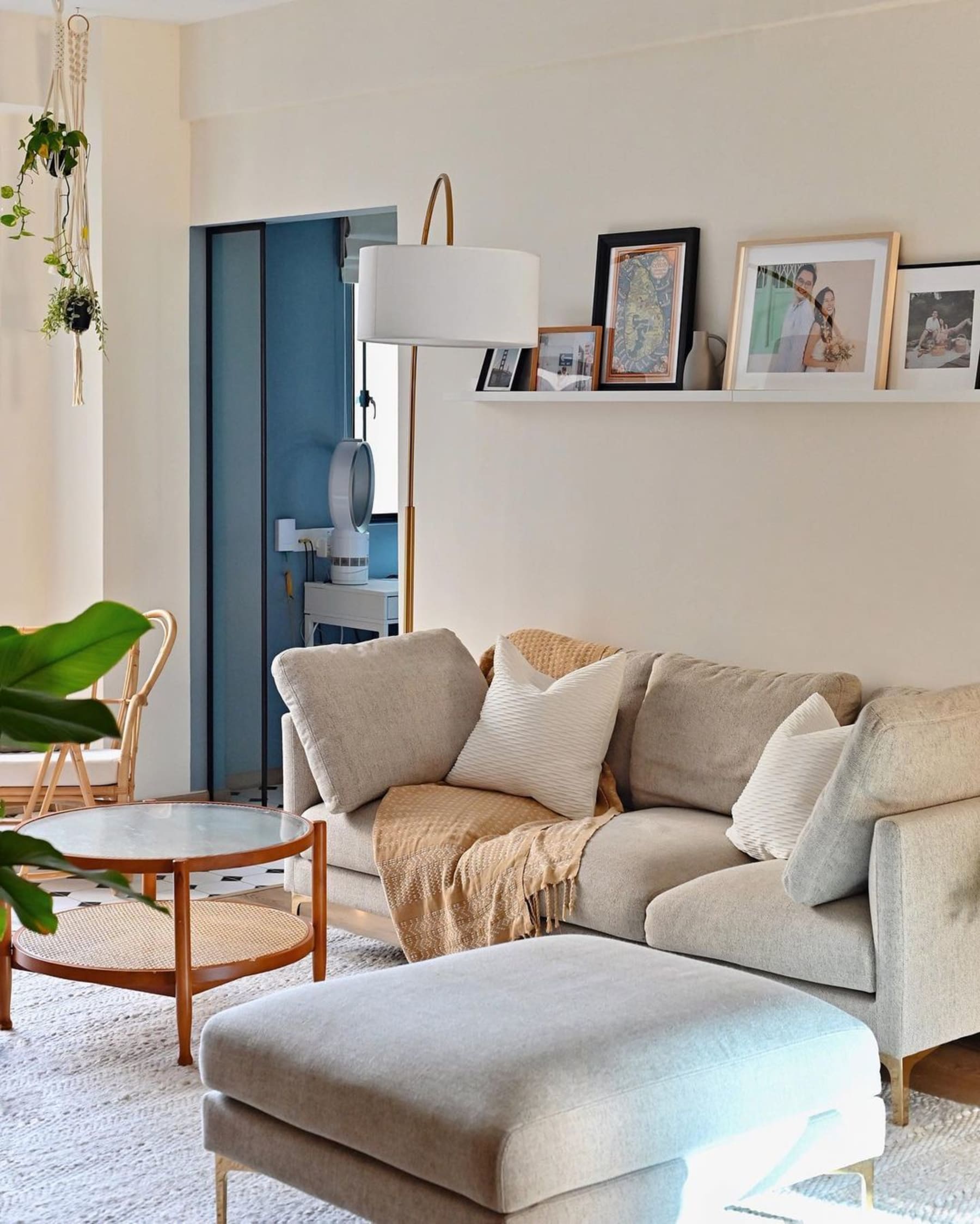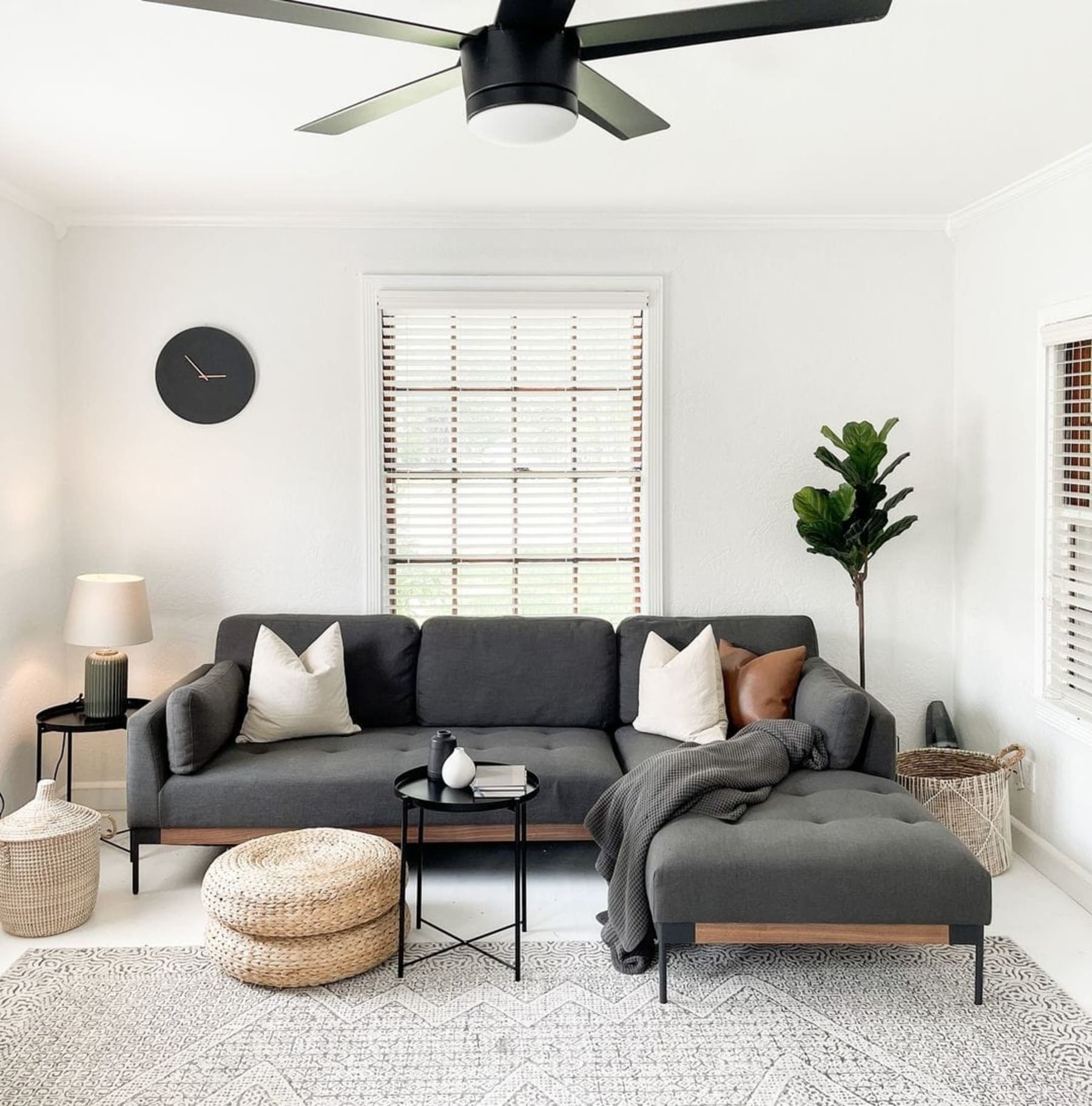
A Professional's Guide to Minimalist Interior Design
Minimalism is a common and popular practice seen across many homes that revolve around simplicity and functionality. Minimalist furniture and interior designs offer a timeless aesthetic that promotes tranquility and balance in your living spaces.
In this comprehensive guide, our in-house interior stylist, Adrika, dives deeper into this interior design style. She delves into the principles and techniques, enabling you to craft elegant, clutter-free spaces that exude sophistication and calmness.
For Adrika, no two homes are ever the same. With clients’ narratives always at the forefront, it’s her passion to help bring spaces to life! With a wealth of design knowledge built up over the last 8 years in the Interior Design industry, Adrika has styled thousands of homes - between Australia and Singapore!
What is minimalist interior design?
“The concept of minimalist design has been around for centuries – first appearing in cultures such as Zen Buddhism – which embraced simplicity and harmony,” says Adrika. It centers around the concept of "less is more," focusing on simplicity, functionality, and purpose.
In the 20th century, it became a popular concept in the modern world. As technology boomed and more products became available on the market, minimalism became a response to the intensity of urban life.
At its core, minimalist interior design aims to create serene and clutter-free environments that promote tranquility and balance. By eliminating unnecessary items and focusing on essential pieces, minimalist spaces exude a sense of calmness and sophistication.
This design philosophy embraces the idea that a well-thought-out, unpretentious environment can foster a greater appreciation for the beauty of simplicity. “Minimalism has always been at the core of modern design styles influencing and being influenced by styles such as mid-century modern and Scandinavian designs.”
Key characteristics of minimalist interior designs
“Bringing together a minimalist space is actually not an easy task!” Adrika shares. “Being able to take away what is unnecessary in a space so that there is only the necessary requires constraint.”
But, there are some key characteristics that make a space undeniably minimalistic:
Embrace emptiness and open space: Empty space is essential in minimalist design to allow the eye to rest and create a sense of openness
Clean lines: This principle emphasizes using straight, unadorned lines in furniture, architecture, and decor
Avoid clutter: Minimalist interiors avoid excessive decoration and clutter on surfaces and instead, showcase carefully selected items to draw attention
Monochromatic palettes: This interior style often employs monochromatic color schemes, with other colors used as accents
Minimalist interior design styling tips
Opt for furniture with clean lines
Whether it's the sleek edges of a modern sofa or the simple silhouette of a minimalist pendant light, clean lines contribute to the uncluttered and sophisticated look of minimalist spaces.
“Furniture with clean lines that are off the floor work best in this style,” she shares. Furniture that appears to float or hover above the floor creates a sense of lightness and open space that is characteristic of minimalist designs.

The Gable Bouclé High Armchair and Ottoman Set is created by Australian designer Charles Wilson.
Adrika also mentions that with furniture that are raised off the ground, there is a clear delineation between the furniture and the floor. This separation enhances the flow of the room, making it easier for the eye to move through the space, creating a sense of openness.
To help you visualize how the minimalist interior will look like, we’ve used Castlery’s room designer tool with our products - the Adams Chaise Sectional Sofa with Ottoman, Colette Swivel Armchair, Cupid Coffee Table, and Lorenzo Wool Area Rug

Castlery’s room designer tool can help you visualize the room of your dreams!
Go for functional and multi-functional furniture
“Multi-functional furniture serves as a cornerstone of minimalism, as it allows for efficient use of space while minimizing the need for excess pieces,” says Adrika. “Furniture is chosen not only for its aesthetic appeal but also for its practicality and versatility.”
Some examples of multi-functional furniture include sofa beds, extendable dining tables, and nested coffee tables. Each piece serves a distinct function without adding unnecessary bulk or visual complexity, contributing to the uncluttered and serene ambiance that defines the minimalist design.
Don’t overdo colors
As mentioned, minimalist spaces favor a more restrained and focused approach to color, often incorporating a monochromatic color palette.
Neutral colors work exceptionally well in minimalist interiors - think whites, beiges, soft browns, and muted earthy tones. These colors are commonly used to create a serene atmosphere and provide a calming backdrop for other design elements to stand out.
You can then introduce depth by using shades and tints of your primary color. Tints are created by adding white to the base color, while shades are achieved by adding black.
“This subtle variation adds dimension to your interior without deviating from the monochromatic theme.”

@ochre.home sticks to a monochromatic palette with greenery to keep a minimal aesthetic. Pictured: The Adams Sofa with Ottoman.
Adrika shares some color combinations that will work well in the minimalist interior design style:
Black and white: The ultimate minimalist combination, black and white creates a striking and modern look. It's a timeless choice that exudes sophistication and simplicity.
Muted earthy tones and green: Combine muted earthy colors such as terracotta, warm browns, and olive green with pops of fresh green to add a touch of nature to a minimalist home.
Gray and navy blue: The pairing of cool gray and deep navy blue brings sophistication and calmness to a minimalist interior. The contrast between light and dark shades adds visual interest.
Soft pastels and white: Soft pastel colors like blush pink, pale mint, or light lavender paired with white evoke a gentle and airy ambiance, perfect for a minimalist setting.
White and light wood tones: Pairing white with light wood tones like natural oak or birch creates a fresh and Scandinavian-inspired look that complements minimalist design principles.
“But, it’s important not to go overboard with the colors,” she remarks. Using too many colors can create visual clutter and disrupt the calmness and unity that minimalism aims to achieve.
“Follow a monochromatic color scheme starting with the bulky items, like your sofa or dining table. Work around these pieces and then add pops of color around them to create a cohesive and balanced space.”
Embrace the ‘less is more’ approach
“Keep the ethos that ‘less is more’ at the top of your mind. With so many options in the market, it can be easy to allow yourself to be swayed into bringing more and more items into the space.”
Minimalism is all about careful consideration of what you allow into your home. Eliminate excess and unnecessary elements from your home - this involves decluttering and paring down belongings to only those that are essential or truly meaningful.
Also, rather than filling a room with numerous pieces of furniture and decorations, minimalist design directs attention to a few carefully chosen essential elements. Each piece should be purposeful and complement the overall design, allowing it to shine as a focal point.
Let the architecture of your home speak
This key principle in minimalist interior design encourages you to embrace and highlight the inherent features and design elements of their living space.
“The base foundation of your home plays a huge role in the overall scheme - the furniture is there to let the core design of the space speak, rather than cover it.”
Celebrate the existing features in your home such as exposed beams, concrete walls, large windows, or vaulted ceilings. Instead of covering up or detracting from these elements, minimalist design works with them, allowing them to shine and become prominent design focal points.

The Ethan Chaise Sectional Sofa creates a striking contrast with white walls - the classic black and white aesthetic.
By mastering the art of minimalist interior design, you can transform your living spaces into havens of serenity and sophistication.
Embrace simplicity, prioritize quality, and remain mindful of your furniture choices and placement. Embrace the elegance of minimalist design, and your home will become a timeless expression of your refined taste and appreciation for the beauty of simplicity.
If you need more help visualizing how the minimalist interior can work for you, check out Castlery’s room designer tool! This tool allows you to bring your imagination to life by placing different furniture pieces and customizing colors to suit the minimalist interior design. Try it out today!